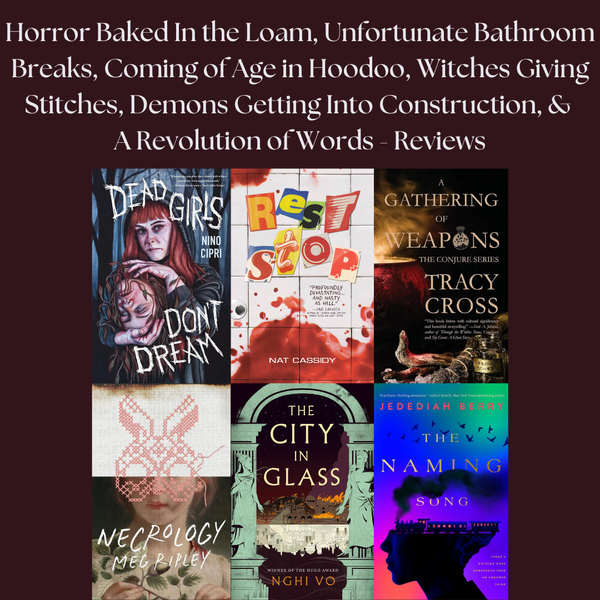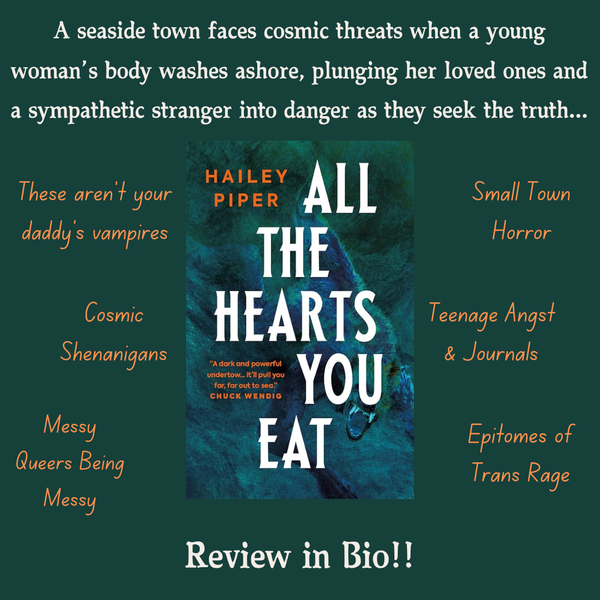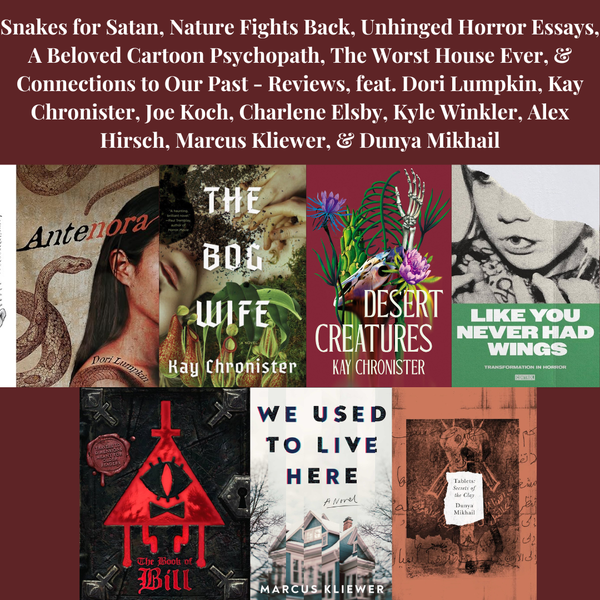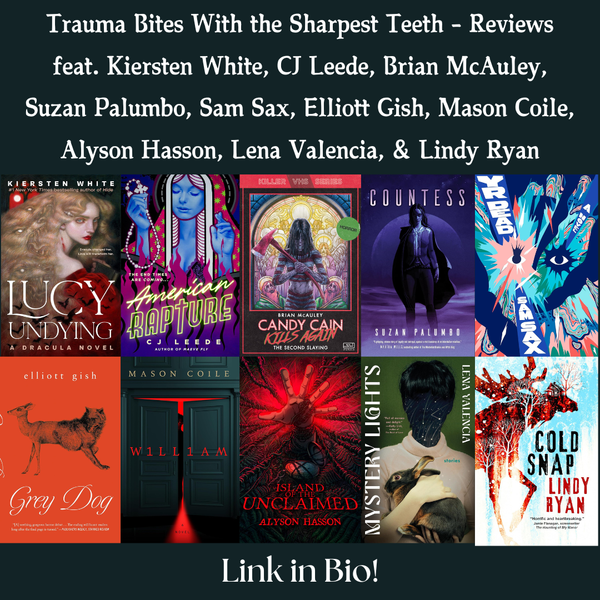Out There Screaming: An Anthology of New Black Horror - Review
Jordan Peele brings together a talented roster to deliver an anthology for the ages.
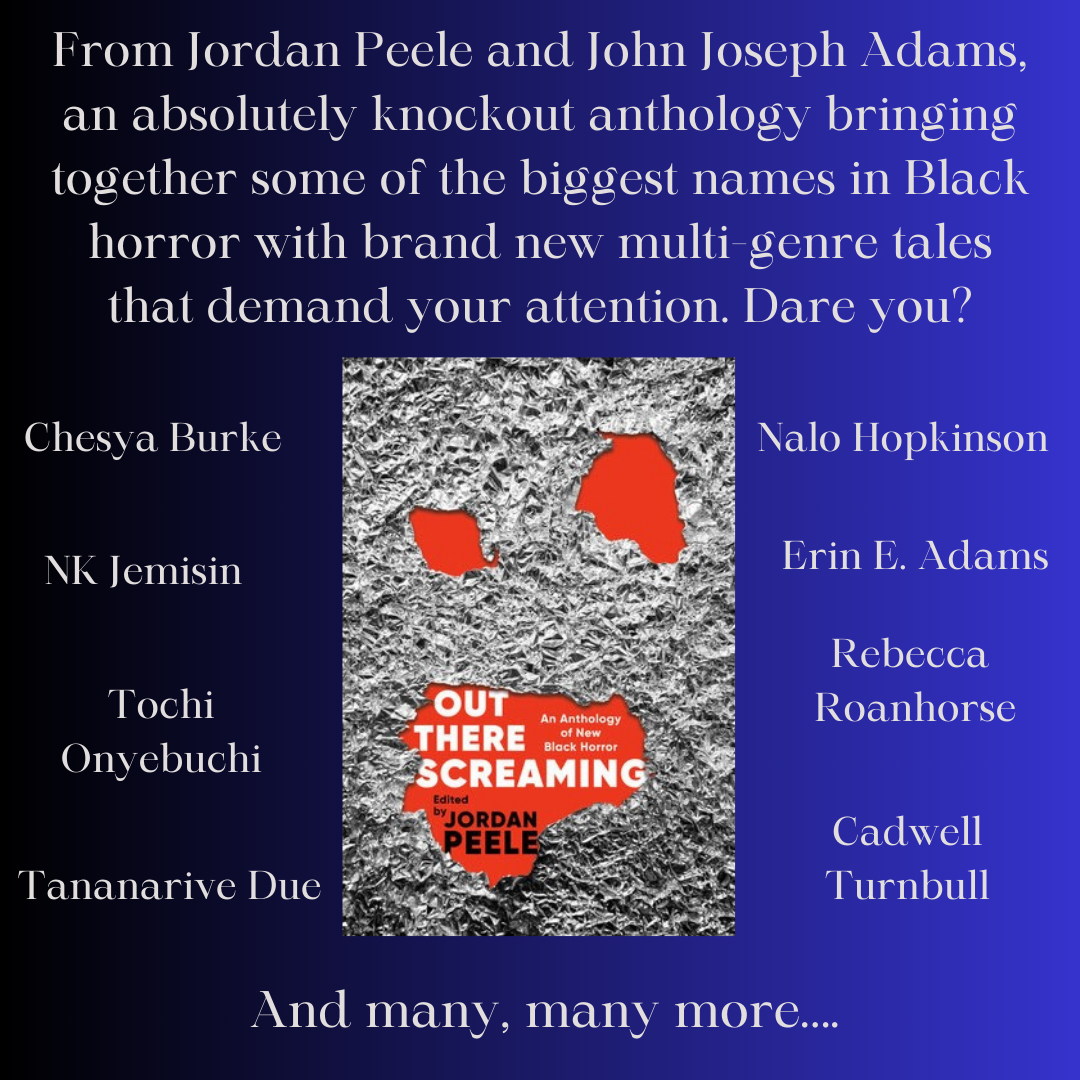
When I first saw Erin E. Adams’ announcement of this project on Instagram, I was beyond excited. To see a high-profile director help amplify some of the biggest and most prolific writers in Black horror is exciting regardless, but seeing the names themselves is something else entirely.
Adams’ name is listed alongside the great Tananarive Due, Nalo Hopkinson, and even Nnedi Okorafor. When the anthology released onto Penguin Random Audio as a review copy, I was able to finally witness the lineup as a whole… and oh my god.
Chesya Burke, NK Jemisin, Rebecca Roanhorse, Tochi Onyebuchi, Cadwell Turner, as well as writers I hadn’t previously read, it became clear to me that Out There Screaming was something special for the genre. As of 10/03/23, it’s beauty is blessed upon the world.
Trying to pick favorite stories is difficult, because they’re all excellent in their own ways. Jemisin’s tale, “Reckless Eyeballing,” of a police officer seeing eyes in place of headlights on the cars of folks he pulls over is a darkly hilarious account of madness, as well as a poignant deconstruction. It’s followed by the excellent adventure horror of Roanhorse’s story, “Eye & Tooth,” of siblings contending with supernatural oversight in southern America.
Much like Peele’s reboot of The Twilight Zone, these stories play fast and loose with genre. While some display a wit and humor within the darkness, others embrace the darkness of their tales and endings, shining further light upon the failings we continue to perpetuate through white supremacy.
One of my favorites came from a writer new to me, Nicole D. Sconiers. Her tale of two ghosts, Delmarva and Amber, competing to reach the afterlife is called “A Bird Sings by the Etching Tree.” Based in Philadelphia, the two ghosts commiserate over their lost lives and experiences, all the while showcasing the very real differences of privilege, even in death. The mechanics of this story flow in a dream-like, despite it being an utter nightmare for Delmarva as she faces regret and loneliness. Sconiers speaks to a Philadelphia before rampant gentrification, providing pieces of history that many of the current inhabitants of the city have never known. Much of its tone culminates in Delmarva’s becoming a local “cryptid,” as Amber calls them, seeing how myth becomes legend becomes a piece of said forgotten/erased history.
The four closing stories were also some of my favorites, beginning with Chesya Burke’s “An American Fable,” followed by Terence Taylor’s dark sci fi horror “Your Happy Place,” and closing explosively strong with P. Djeli Clark’s heartbreaking “Hide & Seek” and Tochi Onyebuchi’s breathtaking “Origin Story.”
“An American Fable” functions exactly as it reads on the tin. Burke’s talent for melding the strange with realism is on full display in what feels like an epic horror fantasy about a soldier returning home, only to be welcomed into a fantastical world seeking to protect Black folks from the white supremacy. Despite the dark tone of horror and racism, there’s a further hope present in a parallel world full of deeper fantastical enrichment.
“Your Happy Place” is an example of how rich Peele’s vision and passion for the Twilight Zone is and I wish it was able to continue. This story features a man who discovers the disturbing use of virtual technology to curb revolution and control oppressed groups. I’m not here to spoil it’s disturbing twist, but it’s execution is terrifying and horrific. This absolutely would shine as a fantastic Twilight Zone or Black Mirror episode, being that it explores its darkness to its fullest potential.
“Hide & Seek” is a beautiful and tragic exploration of drug addiction through the lens of magic. The tone is much like a richer expansion on a It Comes At Night premise, as two brothers cope with the explosive withdrawals their mother experiences from taking the distilled dredges of magic, which prompts a high-like euphoria. It’s brutal, but Clark’s signature storytelling and depth of empathy shines through the young narrator’s voice. It is tremendous and sets readers up for Tochi Onyebuchi’s clever finale.
“Origin Story” is structured as a script, presenting four young white men discussing their college class that has caused them to fear for their status as “white men.” They fear that the teachings will reveal to them how much their identities have been centered around systems and structures built to insulate and protect them, causing their inevitable fading in “importance.” Each man represents the different facets of not only white fragility, but the larger scope of white nationalism and heteropatriarchy as ruling ideologies in current American media, politics, and more.
While many of the students seem to be open to the idea of reexamining their whiteness on a broader scale, one of them clings to the power and dominance that stems from his privileges and views this course, and by extension, critical race theory, as a threat. While many see the phrase “origin story” and think to beloved superheroes and how they came to be, Onyebuchi subverts these expectations by instead presenting the origins of a supervillain. There is a fantastically surreal middle point that brings the horror home, making this the perfect closer to an already outstanding collection.
Over the past few weeks of my starting this particular post, I’ve seen many customers excitedly purchase this anthology, which has gotten me very excited. In loving this collection of brilliant stories from brilliant people, I want to see its success. The star power of Jordan Peele’s name lends credence to the stories that are inside, but I’m most excited for people to discover for themselves just how masterful these creators are. Many, including Tananarive Due, Nalo Hopkinson, N.K. Jemisin, have decades of work to discover and devour.
Not only are you introduced to stellar horror and dark fiction, but you get to see the writing that has shaped creators and thinkers like Peele. You are welcomed into the future of horror through their multi-faceted lenses and come out the other side a completely different reader and thinker. I urge you to give this anthology your time. It is, as the saying goes, a gift that keeps on giving.

